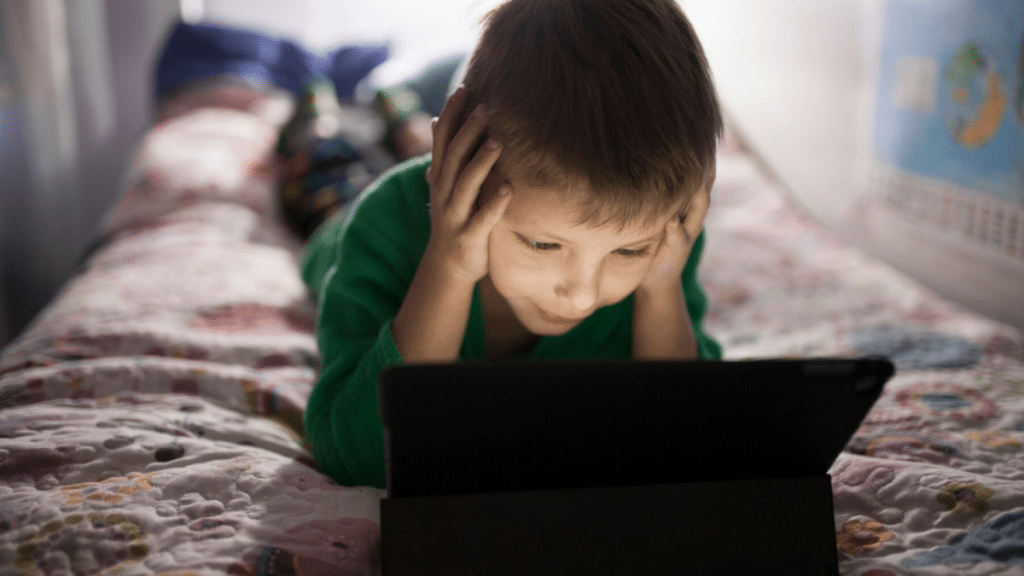In modern realities, it is important to monitor the kids’ safety both in the real and virtual world. The Internet has a lot of useful content for children – it is an essential platform for communication, searching for information, learning, etc. Nevertheless, we all know that a child can face various dangers there – cyber threats (malware, phishing, and scams), age-inappropriate content, bullying, etc.
Nevertheless, when trying to protect your kid, do not deprive him/her of Internet access completely! Otherwise, you will achieve a backlash and lose contact with your child. This rule is relevant to other educational processes. If you have a trusting relationship in your family, you will quickly notice that something wrong is happening with your child. However, such events as the development of alcoholism, drug addiction, and gambling addiction can be prevented! Moderate Internet access will not harm a child. The same can be said about casino games – provided that we are talking about adults (over 18/21 years old). Gamblorium gambling sites offer a great opportunity to have fun, supported by various casino games, NZ dollars, bonuses, and fast promotions.
What About The Experts’ Opinion?
Dr. Mary Aiken is a world-leading expert in Cyberpsychology, who has participated in the CSI: Cyberspace TV series creation. She has also collaborated with Interpol and the FBI. Dr. Aiken believes parents to be the head guarantors of children’s Web safety. She also states that parents don’t need to be psychologists, police officers, or hackers – they just need to follow a few simple rules!
Of course, the diversity of digital threats dictates a special protection format. Therefore, it is not enough for parents to install an antivirus on their child’s device. It is important to combine technical and non-technical protection measures. The first includes various family settings in services, parental control programs, and security solutions. Besides, special programs – advanced caller IDs – can also block calls suspected of fraud.
Non-technical measures include continually improving digital literacy and building trusting relationships within the family. When a child is just starting to master the digital space, parents need to talk with him/her. The conversation can be similar to explaining safety rules to children while walking in the yard! Remind him/her that it is important to be attentive, not to trust strangers, and not to go anywhere with them! If they make an extremely generous offer – the kid must refuse it and tell adults about frightening or incomprehensible things.
Tell Children About Internet Viruses!
Among the technical threats that both children and adults can encounter are viruses. Thus, avoid following email links from unknown addresses, using advertising banners that appear on websites, opening an attachment, or downloading an application from an unofficial store. Besides, scammers often disguise malicious code as children’s materials – cartoons, songs, pictures. Therefore, monitor which sites your children visit and what files they download. Do not neglect certified anti-virus software and additional programs to block malicious content.
Online games (websites or applications) can also be infected with viruses. Therefore, you should download them only through trusted resources. These include the official Google Play or App Store app stores. If we are talking about casinos or betting sites, then the operator must have a valid license from a reputable regulator. Nodar Giorgadze emphasizes that almost all licensed online casinos offer to download a mobile app.
Finally, unverified flash drives can cause hacking. Do not bring home and connect an unverified flash drive. Your computer can fail to cope with the virus that it may contain. This rule is especially important to discuss with the children.
Protect Your Child from Internet Bullying
Cyberbullying is one of the most common Internet dangers. These are threats, insults, dissemination of false information, extortion, blackmail, etc. Unfortunately, children and teenagers often become its victims. To protect young Web users, take several measures. First, teach your child Internet safety rules. The main one is the refusal to communicate with strangers. It is also important to talk to your child about privacy. Explain why he/she shouldn’t publish a lot of information about himself/herself online and how to protect his/her accounts. Unfortunately, privacy invasion is a pressing issue for children. They often post photos that show the home interior, indicate their relatives’ names, or even publish a mobile phone number. Secondly, install programs that protect children from harmful contacts and information.
The parental controls feature is great for combating bullying. It blocks inappropriate content and provides parents with detailed reports about their kids’ Internet activities. You will be able to receive alerts when any of the designated words are used in online communications. Besides, many social networks have features that block bullies and prevent them from writing offensive messages.
100% Web Safety for Children
Not long ago, the New York Legislature approved laws to limit children’s access to addictive content from social networks – the Safe For Kids Act and to protect the personal data of minors – the Child Data Protection Act. The Safe for Kids Act requires social media companies to limit access to recommended addictive content to users under 18 unless parents have authorized the process. Besides, without obtaining parental permission, they send notifications to minors from 12 midnight to 6 am. The Child Data Protection Act would prohibit online platforms from collecting, using, sharing, and selling the personal data of anyone under 18. In both cases, violators are subject to a $5,000 fine.
Of course, such legislative measures will greatly contribute to ensuring minor safety on the Internet. However, this is far from world practice. Therefore, the kids’ Internet safety is largely their parents’ issue to take care of.
